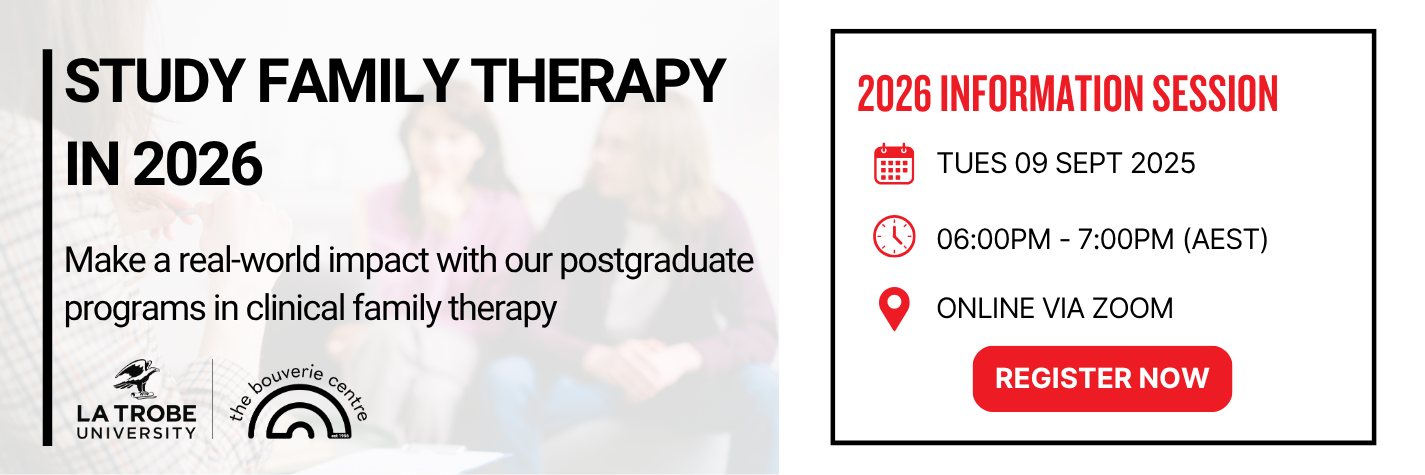Postgraduate coursework degrees

Make a real-world impact with our postgraduate programs in clinical family therapy. Benefit from learning in an integrated practice-research environment with a strong focus on skill development.
Why study with us
We have been leaders in delivering quality education in the study of family therapy in Australia for over 30 years.
Our courses are accredited by the Australian Association of Family Therapy (AAFT).
Our students
- develop a solid grounding in family and systems theory which lends itself to supporting family engagement, support and family focused treatments in a variety of settings.
- are supported and supervised by our team of experienced family therapists throughout their learning experience.
- benefit from our strong focus on skill development within a student’s current family work context and supervised clinical practice with a student’s own clients as well as ours. This experiential method of teaching allows students to develop, integrate and apply the skills and knowledge they are continuously acquiring during the course.
- gain from learning in an integrated practice-research centre combining a clinical service, qualitative and quantitative research, and workforce development.
Enquiries
For further information please go to https://www.latrobe.edu.au/courses/family-therapy or contact La Trobe on 1300 135 045.

